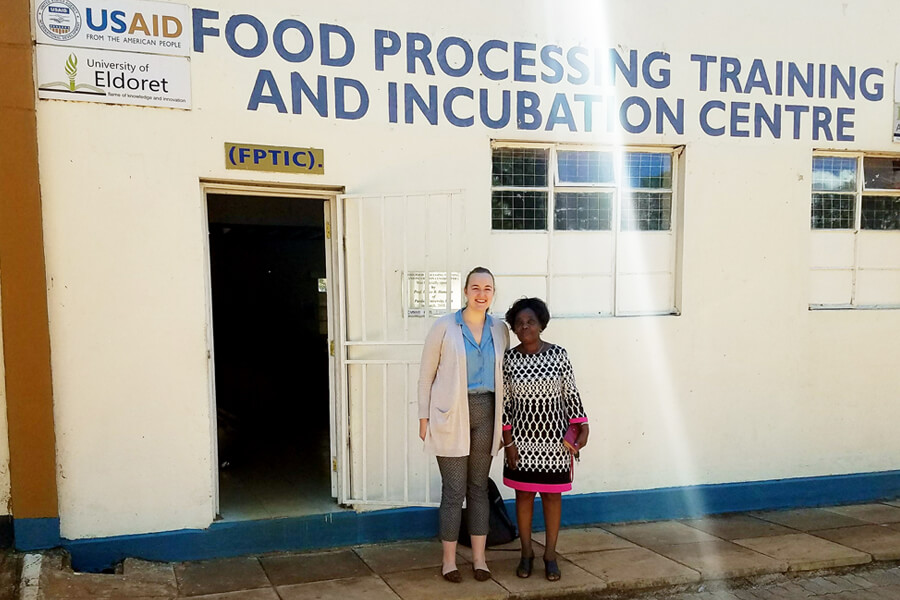Margaret Hegwood: Boren Fellowship Recipient

Safer food and a safer world are inseparable goals for Margaret Hegwood, a master’s degree candidate in biological engineering, as she prepares to work in Kenya starting this September. She’ll do so with the support of a Boren Fellowship for national security and strategic language studies.
Hegwood received the fellowship based on an ambitious plan she proposed to the U.S. government for learning the Swahili language while continuing her research on beneficial, culturally appropriate adaptation of food processing technology for Kenya’s maize and peanut crops.
She will travel to the city of Eldoret for a semester of work in university laboratories and in the field, where the country grows, develops, and brings to market products that help sustain farmers, whole sectors of the economy, and good nutrition for the whole population.
This opportunity advances her big-picture view of a career and her contributions to the African country she’s already visited twice, according to Hegwood. She has embraced the ideas of becoming a globally competent biological engineer and enhancing a country’s infrastructure for healthful foods.

“This is a nice intersection of all those things,” she said, adding that she has wanted to develop a fluency in Swahili, which is a unifying force among Kenya’s diverse population. Her four-month plan of work, approved by the Department of Defense which provides the Boren fellowships, combines intensive language studies with work on her master’s thesis.
That research aims to optimize food processing in order to reduce risks from components called anti-nutrients and especially from aflatoxins—carcinogenic compounds made by molds. The precautions are particularly important when product storage facilities may not always maintain safe temperatures and other conditions, Hegwood explained. She has arranged to pursue problem-solving technology partly at the University of Eldoret — just one of the places where an eagerness to learn from local experts, and to communicate with Kenyans experiencing food challenges first-hand, requires native language skills.
The Boren fellowship program, which will pay for this overseas segment of her ongoing graduate study in the Agricultural and Biological Engineering Department, recognizes that language-learning is indeed a strategic skill. It has implications for U.S. national security through positive foreign relations. As a fellowship recipient, Hegwood sees various reasons why it’s compelling to build up a country’s food supply chain and keep its citizens well-fed and healthy, including compassionate desires for social and economic stability.
“Hungry people are angry people,” as she put it.

In return for the fellowship aid, she has agreed to serve as an employee of the U.S. government for at least one year, using the language skills or international knowledge she will have gained. She anticipates receiving her master’s degree in 2020 upon completion of her five-year program of combined undergraduate and graduate study.
Hegwood’s big-picture career preparation at Purdue has included double enrollment in the College of Agriculture, studying economics and policies undergirding the U.S. food distribution system, as well as the College of Engineering. She is benefiting from a graduate assistantship with the COE’s Global Engineering Programs and Partnerships (GEPP), and she has already interned this year with the U.S. Department of Agriculture in Belgium.
“The staff at GEPP have been really helpful with connections regarding what it means to be a global engineer,” Hegwood said.
She’s grateful for the supportive spirit she said she has encountered across the University since her days as a first-year student. “I’ve worked hard, but I’ve had a lot of help from really fantastic mentors, from my freshman year through now.”
Writer: William Schmitt, billgerards@gmail.com
